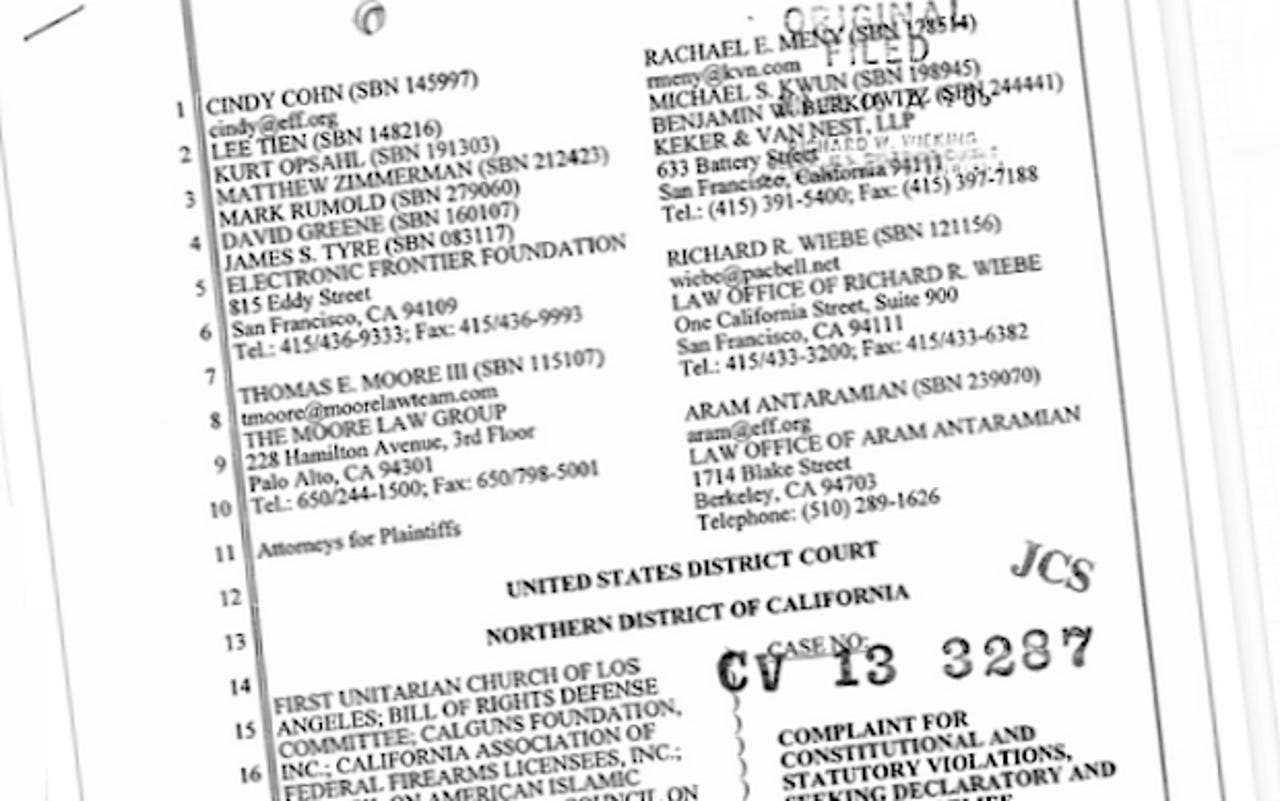EFF sues NSA over warrantless government spying program

The Electronic Frontier Foundation (EFF) has filed a lawsuit against the National Security Agency (NSA) over its widespread, warrantless surveillance program.
The privacy and civil liberties group is representing 19 groups, including a Los Angeles church, an environmental protection group, and religious foundations, under claims that the U.S. government is violating the Fourth and Fifth Amendments.
Also violated, the coalition claim, is the Second Amendment, which is one of the reasons why gun rights groups are on the ticket suing the NSA.
Among the names, including Greenpeace, the First Unitarian Church of Los Angeles, the Free Software Foundation (FSF), and the Californian chapter of the Organization for the Reform of Marijuana Laws, three names stood out.
The Calguns Foundation; the California Association of Federal Firearms Licensees; and Franklin Armory, which makes AR-15 semi-automatic rife that, among other types, are legal under Californian law.
It's a diverse group, for sure, and likely a selection from the raffle of random, but all those named believe they have been wronged or had their rights violated as a result of the NSA's mass spying programs.
The EFF demands in the suit that the NSA surveillance programs cease immediately.
"The First Amendment protects the freedom to associate and express political views as a group, but the NSA's mass, untargeted collection of Americans' phone records violates that right by giving the government a dramatically detailed picture into our associational ties," EFF legal director Cindy Cohn wrote on the group's blog.
"Who we call, how often we call them, and how long we speak shows the government what groups we belong to or associate with, which political issues concern us, and our religious affiliation," she added.
